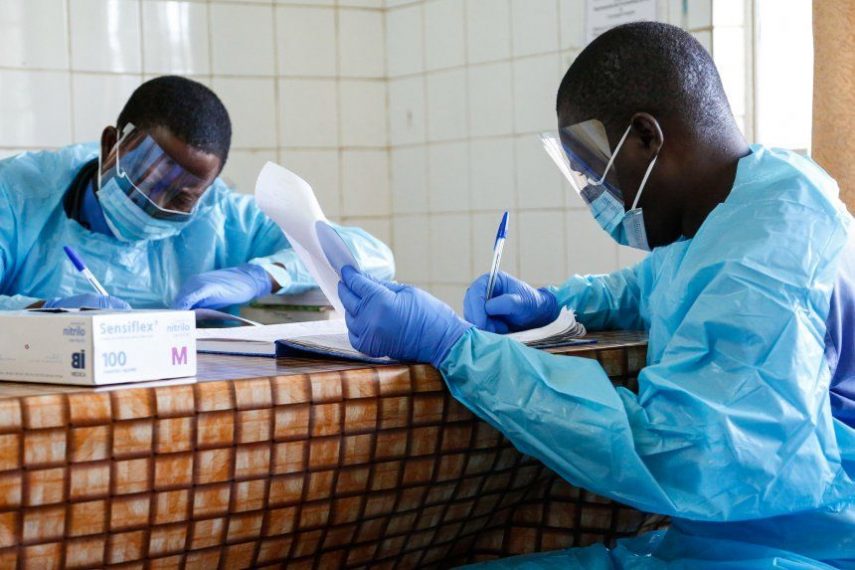Nigeria, a country known for its diverse landscapes and cultural heritage, struggles with substantial healthcare disparities between urban and rural regions. While urban areas contend with issues like limited medical resources, insufficient healthcare personnel, and a lack of necessary equipment, they still manage to provide reasonably adequate healthcare services compared to rural communities. In contrast, rural areas face numerous obstacles that impede their access to essential healthcare services.
Rural communities in Nigeria regularly encounter significant barriers when attempting to access healthcare services. Chief among these challenges is the scarcity of healthcare facilities and adequately trained medical professionals in remote areas.
A report by the World Health Organization (WHO) highlights a notable urban-rural gap in the distribution of healthcare resources in Nigeria, with the majority being concentrated in urban centers.
Geographic Barriers:
Geographic isolation poses a significant obstacle to healthcare access in rural Nigeria. Many remote areas are far removed from urban centers, making it challenging for residents to promptly access healthcare facilities. Factors such as long distances, poor road conditions, and limited transportation options contribute to delayed or neglected healthcare seeking behaviors.
Shortage of Healthcare Facilities and Personnel:
Rural regions often grapple with a shortage of healthcare facilities and trained medical professionals. Compared to urban centers, rural areas in Nigeria have disproportionately fewer healthcare facilities, leading to limited access to essential services and prolonged wait times for medical care.
Financial Constraints:
Economic factors also hinder healthcare access, particularly in rural communities with higher poverty rates. Many rural residents struggle to afford healthcare services, medications, and transportation costs to reach medical facilities. Out-of-pocket expenses associated with healthcare deter individuals from seeking timely medical attention, perpetuating health issues and economic challenges.
Healthcare Infrastructure Disparities:
There is a stark contrast in healthcare infrastructure between urban and rural areas. Urban centers typically boast better-equipped hospitals and clinics, while many rural healthcare facilities suffer from dilapidation and a lack of essential medical equipment. The uneven distribution of healthcare infrastructure, as indicated by the National Health Facilities Registry, underscores the disparities between urban and rural regions.
Lack of Skilled Personnel:
In addition to inadequate facilities, rural areas face a shortage of skilled healthcare professionals. The distribution of healthcare workers in Nigeria is heavily skewed towards urban areas, resulting in a scarcity of doctors, nurses, and other providers in rural regions. This shortage further compromises the quality of healthcare services available to rural residents.
Power Challenges:
Another critical aspect of healthcare infrastructure in rural areas is the unreliable electricity supply. Many healthcare facilities in remote regions struggle with power shortages, hindering the functionality of medical equipment and limiting the provision of essential healthcare services. Electrification rates in rural areas lag behind urban centers, exacerbating the healthcare infrastructure divide.
Proposed Solutions:
Investment in Rural Healthcare Infrastructure:
Increasing investments in rural healthcare facilities is essential to address infrastructure disparities. Constructing new, well-equipped healthcare centers and upgrading existing ones will enhance the availability and quality of healthcare services in remote regions. The government, in collaboration with international partners, can allocate funds specifically for rural healthcare infrastructure development.
Training and Deployment of Healthcare Professionals:
Addressing the shortage of healthcare professionals in rural areas requires a comprehensive strategy. Government initiatives and incentives should encourage medical professionals to work in underserved communities. Investing in the education and training of local community health workers can enhance primary healthcare services in rural areas and address the shortage of skilled personnel.
Improving Transportation Infrastructure:
Efforts to improve healthcare access should also focus on transportation infrastructure. Constructing and maintaining reliable roads in rural areas and implementing affordable public transportation options can significantly reduce travel barriers for rural residents seeking medical attention.
Financial Support and Health Insurance:
The government can establish and promote health insurance programs targeted at low-income individuals in rural areas. These programs can provide financial relief and encourage healthcare utilization by covering medical expenses. Additionally, subsidies for essential medications and preventive healthcare measures can contribute to a healthier rural population.
Alternative Energy Solutions:
Implementing alternative energy solutions such as solar power is crucial to address power challenges in rural healthcare facilities. Sustainable energy sources can ensure a reliable electricity supply, enabling the consistent operation of medical equipment and improving the overall quality of healthcare services in rural areas.
Last line:
Addressing Nigeria’s urban-rural disparities in healthcare accessibility and infrastructure requires a concerted effort from the government, healthcare organizations, and the international community. By acknowledging the challenges faced by rural communities and implementing comprehensive, sustainable solutions, Nigeria can pave the way for a more equitable healthcare system. Bridging these gaps is not only a matter of social justice but also a strategic investment in the nation’s health and development. Collaborative efforts among stakeholders can lead to accessible, quality healthcare for all Nigerians, regardless of their geographic location.
Aishat M. Abisola is a corps member with PRNigeria in Abuja.



